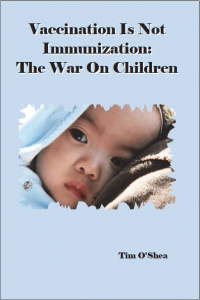
In the realm of public health, few topics evoke as much controversy and confusion as the relationship between vaccination and immunization. While vaccination is often hailed as a cornerstone of modern medicine, there exists a prevalent misconception that receiving vaccines automatically equates to immunity. However, the reality is far more nuanced. This article aims to delve into the intricacies of vaccination and immunization, dispelling myths, and providing clarity on this crucial subject.
Understanding Vaccination and Immunization
Exploring the Basics
Vaccination, a preventive measure against infectious diseases, involves the administration of a vaccine to stimulate the body’s immune response. However, it’s essential to recognize that vaccination alone does not guarantee immunity.
Differentiating Vaccination and Immunization
While vaccination initiates the immunization process by introducing antigens into the body, immunization refers to the development of immunity following exposure to an antigen. Thus, vaccination serves as a catalyst for immunization but does not ensure absolute protection.
The Science Behind Immunization
Building Immune Memory
Immunization operates on the principle of immune memory, wherein the body’s immune system retains information about specific pathogens encountered through vaccination or prior infection. This memory enables a swift and robust response upon subsequent exposure, conferring immunity.
Types of Immune Responses
Immunization elicits various immune responses, including the production of antibodies, activation of T cells, and formation of memory cells. These responses work in concert to neutralize pathogens and prevent disease.
Debunking Common Myths
Myth: Vaccination Equals Immunity
Contrary to popular belief, vaccination alone does not grant immunity. While vaccines prime the immune system to recognize and combat pathogens, achieving full immunity often requires multiple doses and periodic boosters.
Myth: Natural Immunity is Superior
While natural immunity acquired through infection can be robust, it may come at the cost of severe illness or even death. Vaccination offers a safer alternative by providing immunity without the associated risks of disease.
The Importance of Herd Immunity
Upholding Community Protection
Herd immunity, or community immunity, occurs when a significant portion of the population becomes immune to a disease, thereby indirectly protecting those who are susceptible. Vaccination plays a pivotal role in achieving and sustaining herd immunity, especially for vulnerable individuals unable to receive vaccines.
Vaccination is Not Immunization: Addressing Concerns
Ensuring Vaccine Efficacy
To maximize the effectiveness of vaccines, it’s crucial to adhere to recommended vaccination schedules and guidelines. Additionally, ongoing research and surveillance help identify and address emerging threats, ensuring continued protection against infectious diseases.
FAQs (Frequently Asked Questions)
Q: Can vaccination completely prevent disease?
Vaccination significantly reduces the risk of contracting infectious diseases, but it does not offer foolproof protection. However, vaccinated individuals are less likely to experience severe illness or complications if exposed to the pathogen.
Q: Are vaccines safe for everyone?
Vaccines undergo rigorous testing and evaluation to ensure safety and efficacy. While adverse reactions can occur, they are typically rare and outweighed by the benefits of vaccination in preventing serious illness and mortality.
Q: Do vaccines cause autism?
Extensive scientific research has debunked the notion that vaccines cause autism. Numerous studies have found no credible evidence linking vaccination to autism spectrum disorders, reaffirming the safety of vaccines.
Q: Why are booster shots necessary?
Booster shots are crucial for reinforcing and prolonging immunity conferred by vaccines. Over time, the body’s immune response may wane, necessitating additional doses to maintain adequate protection against infectious diseases.
Q: Can vaccines be given to pregnant women?
Certain vaccines are recommended for pregnant women to protect both maternal and fetal health. However, it’s essential to consult healthcare providers to determine the safety and necessity of vaccination during pregnancy.
Q: How do vaccines contribute to public health?
Vaccines play a pivotal role in preventing the spread of infectious diseases, reducing morbidity and mortality rates, and safeguarding public health on a global scale.
Conclusion
In conclusion, vaccination serves as a crucial tool in the fight against infectious diseases, but it’s essential to recognize that vaccination alone does not equate to immunization. By understanding the distinction between vaccination and immunization, dispelling common myths, and embracing evidence-based practices, individuals can make informed decisions to protect themselves and their communities. Remember, vaccination is not just a personal choice; it’s a collective responsibility to safeguard public health.